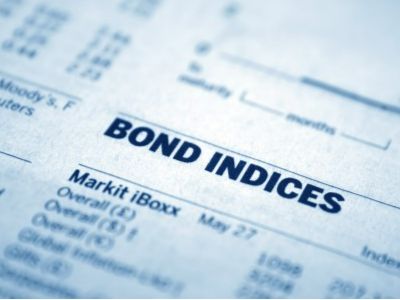Bank of China Hong Kong (02388): Hong Kong's asset management business has vast development space under the global investment trend.
2024-11-06 17:37
With the innovative models of FinTech and digital finance bringing changes to the global financial sector, Hong Kong should seek marginal growth space for the asset management industry through the ETF market, global investment trends such as ESG investing, and further expand and strengthen the asset management market in conjunction with existing offshore wealth management advantages.
Li Yujia, an analyst at the Bank of China Hong Kong (02388) Financial Research Institute, stated in the Bank of China Economic Monthly that asset management business will drive Hong Kong to continuously upgrade from an international financing center to a financial center with comprehensive functions such as asset and risk management, injecting new momentum into the financial development of Hong Kong. As innovative models such as fintech and digital finance bring transformation to the global financial sector, Hong Kong should seek marginal growth space for the development of the asset management industry through trends in global investments such as the ETF market and ESG investments. This, combined with its existing offshore wealth management advantages, can further expand and strengthen the asset management market. Hong Kong can promote cross-border capital flows, enhance the resource allocation function of the international financial center, attract more financial institutions and long-term capital to operate and expand in Hong Kong.
1) Consider expanding the mutual recognition of ETFs to more overseas markets. The mutual recognition of ETFs is a mechanism designed to strengthen cooperation between the capital markets of Hong Kong and overseas markets. In 2023, the first Saudi Arabia ETF listed in Hong Kong achieved a cumulative return of about 8.3% from its establishment to the end of August this year. In September of this year, a Saudi ETF investing in stocks listed in Hong Kong was approved, achieving mutual recognition between Hong Kong and Saudi ETFs. It is recommended to launch more mutual ETFs with cooperation between stock exchanges with more markets, starting with the Middle East and Southeast Asia, gradually expanding the scope of cooperation to broaden the investment channels for asset management in Hong Kong and introduce more incremental funds to the asset management market.
2) Nurture an ESG ecosystem to create a better investment environment. Regarding green standards, the "Hong Kong Sustainable Finance Taxonomy" published earlier enables green financial instruments in Hong Kong to meet both domestic and international standards. In the future, an expedited roadmap for the implementation of international financial reporting sustainability disclosure guidelines should be introduced to help Hong Kong companies accurately disclose information related to climate change. In the bond market, as of September this year, the Hong Kong Special Administrative Region government has issued nearly HK$220 billion worth of green bonds, providing a pricing benchmark for potential issuers; it is suggested to further support domestic and foreign entities to issue bonds in Hong Kong, allow more mainland institutions to issue green bonds in Hong Kong, and attract foreign governments, multinational financial institutions, and multilateral organizations to participate in bond issuance in Hong Kong to expand the size of the green bond market.
3) Continuously expand the scope of mutual access with the mainland financial market. Since the launch of the mutual access mechanism, the assets included in the scope of investment have gradually progressed from basic products to derivative products, introducing mechanisms such as "stock connect," "bond connect," "cross-border wealth management connect," etc., to provide investors with more internationally attractive and risk-hedging investment choices. It is suggested to further increase the scope of mutual access targets, accelerate the research on innovative products such as "futures connect," "IPO connect," and timely launch the "cross-border southbound connect" in synergy with the "bond southbound connect." Landing the detailed regulations on including REITs in mutual access as soon as possible to further strengthen Hong Kong's advantage as a platform for dual-way investment at home and abroad, highlighting the uniqueness of the products in the asset management industry in Hong Kong.
4) Encourage more Chinese financial institutions to establish asset management entities in Hong Kong. In the asset and wealth management business of Hong Kong, the scale of Mainland licensed corporations and registered institutions has been expanding continuously, with managed assets reaching HK$2.676 trillion in 2023, recording a net inflow of HK$153 billion, increasing by 4% and 16% respectively compared to the previous year. The cumulative increase in managed assets since 2019 has been 50%. At the 17th Asian Financial Forum, Li Yunze, Director of the China Banking and Insurance Regulatory Commission, expressed support for Chinese financial institutions to take root in Hong Kong and suggested encouraging more Chinese financial institutions to establish asset management entities in Hong Kong. By utilizing Hong Kong's advantages as an international financial center and offshore RMB business hub, developing more diversified investment products, and leveraging its role as a "super connector" and "super value-added player," it can support the construction of Hong Kong as an international asset management center.
RECOMMEND

AMAC: In January, 137 new asset-backed special plans were filed, with a total scale of 1122.64 billion yuan.
26/02/2025

Schroder Investment: Investors should consider allocating funds to securitized credit and insurance-linked securities.
26/02/2025

Reuss County Asset Annual Reflection: Policy Tipping Point is very clear. The semiconductor industry in 2025 is a game for the brave.
26/02/2025


